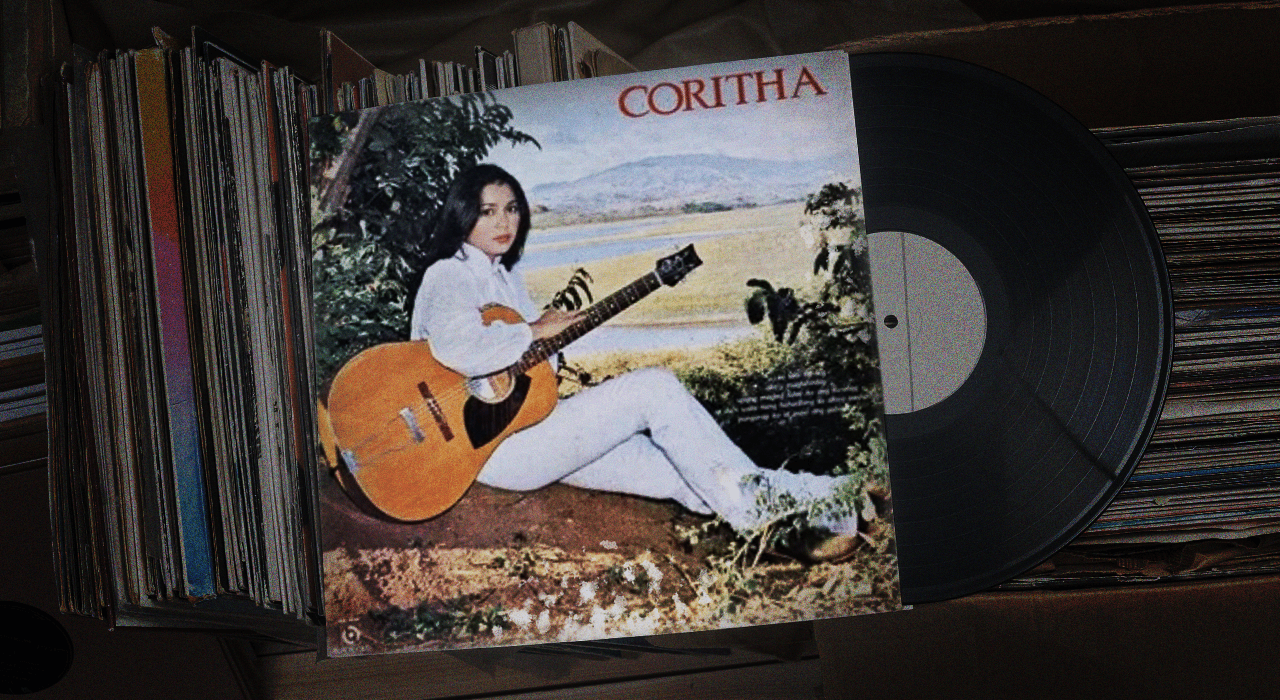‘Ironic then to see these legacy artists falling victim to the same injustice and poverty they protested; their voices now silenced by age, illness, and the onerous contracts foisted on them’
This story first appeared in ourbrew.ph.
MANILA, Philippines – By the early 1980s, Pinoy Rock and its mellower sibling Pinoy folk-rock have reached a saturation point of sorts. The mass market has shifted back to trite pop songs and a segment of the younger crowd was channeling its restless energies through the nihilistic attitude of punk rock.
Coritha, with her angelic voice, soulful eyes, and accessible acoustic songs, gave Pinoy folk-rock an extended lease.
Her self-titled debut album yielded enduring classic songs “Oras Na,” “Sierra Madre,” “Lolo Jose,” and “Maligayang Mundo.” “Oras Na,” a call for self-reflection and action, resonated with the public and the stirring anti-dictatorship movement. The song was heard on jukeboxes and radio stations, and played in rallies.
After the euphoria of the 1986 EDSA Revolution, the country’s uneasy state of affairs faded into routines. Musical tastes again shifted, and Coritha disappeared from the public eye. No one seemed to know what had happened to her. Her songs endured, but where was the singer?
If it were not for broadcaster Julius Babao, we would not have known about her dire medical situation and the hard times she had lived through.
Working musicians can identify with hard times. They live from gig to gig, even after reaching retirement age for most professionals; the pay is measly and the hours punishing to old bodies. But this tight community has been staging benefit concerts to raise funds for Coritha, as they have always done for fellow musicians. It’s a tragedy, and a travesty, that in this industry and in this country, working musicians can only depend on each other in times of need.
Like Coritha, most of the beneficiaries of this unprompted generosity are elders in the trade who started out as working musicians before being signed by record labels in the late ’70s. Pinoy Rock was then at its peak and the record labels were scouting for the next big thing.
Some of these musicians have been honored as legacy artists, respected for works that transcend time and tempest. Coritha, Asin, Heber Bartolome, and other folk-rock musicians cut from the same cloth wrote songs that held a mirror to society and self. But beyond reflecting reality, their songs provoked and disturbed. They were potent antidotes to the despair and apathy prevalent in the years before the Aquino assassination in 1983.
Ironic then to see these legacy artists falling victim to the same injustice and poverty they protested; their voices now silenced by age, illness, and the onerous contracts foisted on them when they were still young and unbothered by the unforgiving, some would say ruthless, ways of the industry they entered.
Absurd and unjust
Remember that the ’70s were a different time. Musically, it was a heady period of creative expression. Young rock musicians were less concerned about the intricacies of contracts and copyright, licensing, and mechanical rights. They just wanted to record an album and share their music. This nonchalant attitude provided the opportunities to bind them to contracts with exploitative terms.
According to artists we have talked to, these contracts often fixed royalties at single digits, and in perpetuity. Case in point is a trailblazing group whose royalties were pegged at P3 for their first album. Publishing rights were relinquished to a supposedly independent publishing company which turned out to be an adjunct of the label.
Artists are often shocked to learn that they do not own the rights to their songs. To illustrate, a group from the ’70s had once informed their label of their intent to release a live recording of their hits. They were told they cannot do so, not before paying the label and the publishing firm which owns the rights. Strange and absurd, but true. Artists have to pay for the right to re-record or reissue songs they wrote. I am told that these terms persisted well into the ’90s, binding an entire generation of solo artists and musicians.
What options are available? They can always bring these parties to court. A famous pop artist had actually won release from his contract, and his case could provide a template for other musicians similarly situated. But not everyone has the means and the physical strength to bear the costs and consequences of a long-drawn out court battle.
The other option is to appeal to their better angels or belated bouts of conscience, but the chances are as slim as Duterte confessing his sins.
These parties continue to profit from the works of legacy artists who are now too old or too ill to perform actively. They can do what they please with the songs, and the artists have no control over the use or packaging of their songs. This is the reality when songs are treated not as creative works, the best ones being slices of an artist’s soul, but as commodities.
When Coritha’s songs are played on streaming services, in videoke bars, or used as background music for Instagram reels, and other commercial purposes, who profits? If it were Coritha, we wouldn’t be having this conversation. – Rappler.com

